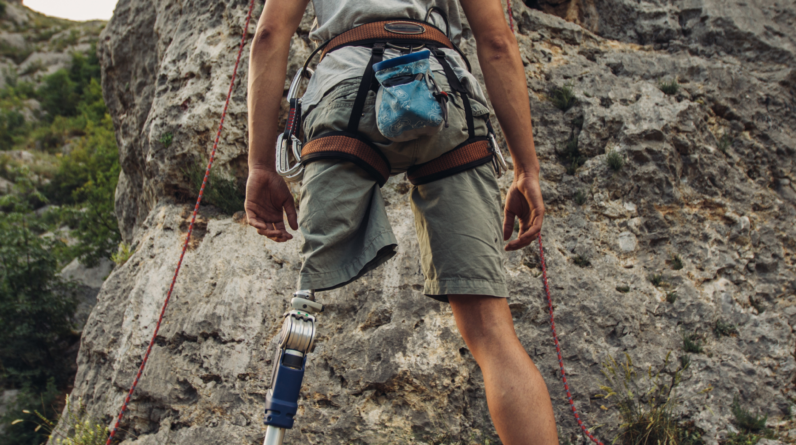
Climbing Nutrition – Fueling Your Body For Optimal Performance
No matter your experience level or climbing experience, making sure your body is fuelled properly for peak performance can seem like an impossible challenge. But with some guidance and some extra effort, you can streamline your diet, maximize performance during training, and crush climbing!
Carbohydrates
Carbohydrates are your body’s energy source. They supply a large part of what we need for climbing and can replenish glycogen stores that get depleted during prolonged exercise. Furthermore, carbs promote fat oxidation which increases muscle endurance and strength.
This nutritional ratio helps ensure an ideal balance of nutrients for peak performance and recovery
Carbohydrate intake should be tailored to each climber’s activity level and range from three to five grams per kilogram of body weight. Ideally, carbs should be consumed gradually throughout the day in moderate amounts so that glycogen stores are replenished before and after climbing.
Proponents of carb-rich diets emphasize foods with complex carbohydrates, such as fruits, vegetables, whole grains, and beans for sustained energy during training sessions. Furthermore, these kinds of carbohydrates help regulate blood sugar levels, improve moods, reduce fatigue, and enhance cognitive performance during competitions.
Carbohydrates should always be eaten with a small amount of protein to help athletes feel full, prevent muscle loss and maximize performance. Protein plays numerous roles in the body such as promoting muscle growth and repair, bone health, immune function, tendon/ligament health, skin health, and organ health.
Climbers should include protein in every meal and snack they consume, especially multi-pitch climbers who should consume a variety of snacks every 60 minutes. These could include dried fruit, nut butter packets, jerky or trail mix.
Climbers should eat a protein-rich meal after their workouts to ensure the muscles have fully recovered from training and prevent fatigue or cramping.
Protein

Protein intake is essential for rock climbers to achieve peak performance. It promotes muscle strength and recovery, reduces the risk of injuries, and enhances energy balance during high-intensity training sessions.
To maximize these advantages, it is essential to consume adequate amounts of protein at regular intervals throughout the day and from various sources. Climbers should aim to consume at least 20 grams of this important nutrient in several meals and snacks throughout the day.
Protein is one of the most essential elements in climbing athletes’ diets, as it provides the raw materials to promote muscle protein synthesis and minimize muscle breakdown. While everyone differs, you should aim for between 1.4 to 1.8 grams of protein per kilogram of body weight for optimal benefits.
Climbers should eat plenty of nutritious carbohydrates to provide energy during training sessions. Athletes can select these from beneficial sources like oats, whole grains, beans and other legumes.
Furthermore, they should prioritize eating plenty of foods that contain fiber for additional health advantages. Fruits, vegetables, whole grains, and dairy products are all excellent sources of carbohydrates essential to a nutritious diet.
Another way to guarantee you get enough nutrients before climbing is by eating protein as part of your meal or snack before the session. Eating a high-protein meal or snack 15-60 minutes prior to climbing will help increase protein synthesis in muscles.
Athletes must ensure they consume sufficient fats for optimal performance, which can be found in nuts, nut butter, avocados, coconut oil, cheese, and other healthy fats.
The results indicate that most climbers consumed below their targeted energy, carbohydrate, and fat intakes and had a minimal risk for disordered eating behaviors/attitudes. Nonetheless, a minority were able to meet their targets.
Fats
Carbohydrates and fats are two essential nutrients climbers need to fuel their bodies for peak performance. Although many diets restrict carbohydrate intake, the correct amount of carbohydrates is essential when climbing to provide energy to muscles and lungs.
Climbers should consume a variety of carbohydrates, from complex to simple, in order to meet their energy requirements. This could include carbs from foods such as bread, pasta, rice and potatoes.
Carbohydrates not only provide energy, but they are essential for muscle mass maintenance and injury prevention. Therefore, climbing athletes should aim to obtain between 60-70% of their total calorie needs from carbs.
Proteins are an integral part of a rock climber’s nutrition plan. They aid in building and maintaining muscle tissue, which is especially helpful when climbing challenging routes or competing in competitions where leanness and strength are crucial.
A high-protein diet can promote a positive nitrogen balance, which may help prevent overheating and enhance athletic performance (Rigby, 2017). Climbing-specific training has also been linked to increased muscle mass and lower resting energy expenditure compared to other sports (Karpinski & Rosenbloom, 2017).
Another advantage of a balanced diet for climbers is that it allows them to reach their optimal strength-to-weight ratio. This ratio plays a critical role in climbing performance, as it will enable climbers to maximize their potential on steep cliffs.
Additionally, athletes should ensure they follow a proper nutrition plan prior to and after climbing events. Doing this helps minimize the risk of performance impairment and injury while optimizing climbing times.
According to Rigby, timing your meals and snacks is key for getting the right amounts of each macronutrient. This includes prioritizing carbohydrate consumption before, during, and after workouts; additionally, eating enough protein and fats throughout the day.
Climbers typically consume a majority of their energy from carbohydrates, yet some reports have noted that they don’t always reach optimal energy consumption despite increasing training volume and intensity. This is an issue common among climbers who neglect to factor in energy requirements when creating diet plans and training schedules.
Water
Water is essential for rock climbers, as climbing can be a physically strenuous sport that dehydrates you. Dehydration can lead to fatigue, muscle cramps and impaired decision-making capabilities if left unchecked.
When climbing, the amount of water you should drink depends on several factors including the intensity of your workout, outside temperatures and your natural sweat rate. Furthermore, take into account your age, gender, and weight when determining how much fluid intake you require.
Additionally, having an oral rehydration solution on hand to drink immediately after your workout can help avoid dehydration as your body begins to break down the water you have consumed.
Climbers can benefit from taking supplements like magnesium and potassium to keep their bodies hydrated. These essential vitamins and minerals support proper function as well as reduce inflammation.
Another way to increase fluid intake is by adding electrolytes like sodium and potassium to your drinks. Combining these nutrients will make climbing more enjoyable by preventing fatigue and improving performance.
Many climbers make the mistake of not taking enough breaks during a session. This can be both frustrating and hazardous, especially when approaching the toughest part of a route.
By taking time to stop and refuel, you will have more energy to complete the next portion of your route. Furthermore, this will enable you to focus on grip and movement with increased precision.
To effectively rest and recover after climbing, use techniques that work for you and take frequent breaks while on the wall. Doing this will keep your muscles and joints from getting overextended, enabling you to recover quickly once at the top of your climb.






